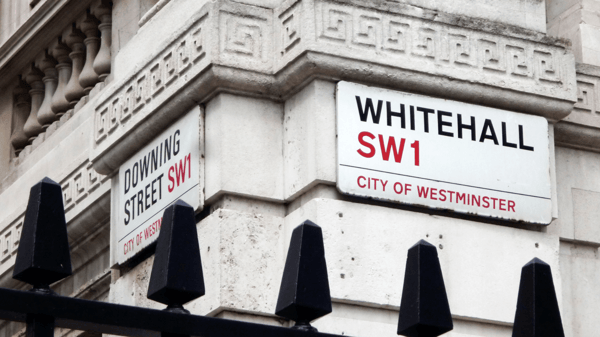Greener Services in Government: from ambition to action
In a bold move towards a sustainable future, the UK government is rethinking public service delivery with its Greener Service principles. Developed by a dedicated team within Defra, these principles are now a cornerstone of cross-government collaboration, driving the nation closer to its ambitious net-zero targets.
The ambitions around greener service principles have significantly evolved since their inception, as we discovered in conversation with Ned Gartside, Senior Service Designer at the Department for Environment, Food and Rural Affairs (Defra).
Initially outlined by a volunteer working group within Defra, these principles have matured into a set of 10 formally established guidelines:

These principles are now integral to cross-government collaboration, offering consistent approaches and frameworks for measuring service emissions and providing role-specific training. The evolution from preliminary sketches to concrete principles underscores the government's commitment to embedding sustainability into public service delivery.
Progress towards sustainability goals
The government has set ambitious net-zero targets, and the Greener Service principles play a pivotal role in this journey.
"The UK is the first major economy to halve its emissions and has set into law one of the most ambitious 2035 climate change targets of any major economy," Defra's Gartside emphasised.
These principles not only help practitioners understand good practices but also foster collaboration across the public sector. The holistic approach of the Greener Service principles covers all lifecycle phases and disciplines involved in service delivery, offering detailed guidelines that highlight environmental impacts and synergies with other project priorities.
This comprehensive framework marks a significant advancement in the UK's efforts to reduce its carbon footprint and achieve its 2035 climate change targets.
Project criteria challenges/opportunities
Incorporating sustainability into project acceptance criteria presents both challenges and opportunities.
On the one hand, it necessitates more stringent demands from private sector partners, pushing them to prioritise sustainability. On the other hand, it positions the government as a leader in global innovation, setting high standards for environmental responsibility.
 "Including sustainability in acceptance criteria means that teams can step up the delivery of greener services. This would help the delivery of broader goals around net zero at organisational, Civil Service-wide, and national levels," noted Gartside.
"Including sustainability in acceptance criteria means that teams can step up the delivery of greener services. This would help the delivery of broader goals around net zero at organisational, Civil Service-wide, and national levels," noted Gartside.
The inclusion of these criteria can accelerate the delivery of greener services, aligning with broader goals of net-zero emissions at organisational and national levels.
From design principles to policy
The application of Greener Service principles to policy formulation and service delivery was a focal point during a recent hack day.
Participants explored the intersection of policy design and service sustainability, considering the social, economic, and environmental impacts of their work.
"Policy design is such a crucial part of the puzzle. It’s here that we really connect to the sustainability of what we do and the services we build," said Gartside. The event highlighted the need for continuous exploration and refinement of these principles to ensure they effectively bridge the gap between policy and delivery.
Metrics for success
Discussions are ongoing about piloting the Greener Service principles within Defra, with a focus on developing appropriate measurement approaches. Initial metrics may include both qualitative and quantitative data, assessing the principles' understanding, implementation, and impact on decision-making.
"We are also looking into developing internal training materials across multiple government departments," Gartside added.
Measuring the reduction in the carbon footprint of services will likely require expert assistance and robust data collection methods.
Cross-Government collaboration
Defra is spearheading a new cross-government steering group to bring together sustainability leads from various departments. Regular community sessions are planned to keep stakeholders updated and involved in sustainability efforts.
"Defra is responsible for the digital sustainability remit across government and has organised the Government Digital Sustainability Alliance, in which civil servants and businesses collaborate to develop ideas and solutions to digital sustainability challenges," Gartside explained.
During Services Week 2024, Defra collaborated with TPXimpact to organise a 'Greener Services Hack Day,' which engaged 70 practitioners from diverse roles.
This partnership was instrumental in translating the 10 Greener Service principles into actionable strategies.
"TPX brought huge value to the Hack Day, with their expertise delivering engaging, collaborative, and inclusive problem-solving sessions," Gartside noted.
This collaboration underscores the importance of partnering with experts to advance sustainability goals.
By evolving and implementing the Greener Service principles, the UK government is making significant strides towards sustainable public service delivery, demonstrating its commitment to environmental responsibility and innovation.
Also Read
- Citizen Services panel brings government leaders together to discuss optimising digital journeys
- 41% of UK employees report suffering because they could not access healthcare
- Scottish Government's Verity Hislop: "it's crucial to focus on improving outcomes for citizens"
- Data reveals the government owes £1.7 million to its suppliers in unpaid invoices






